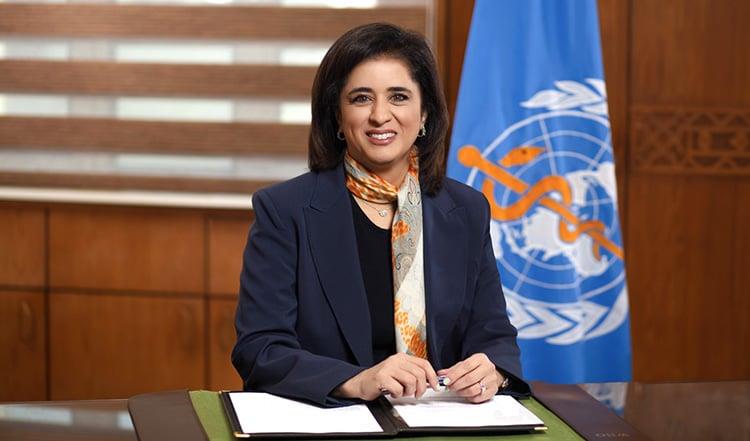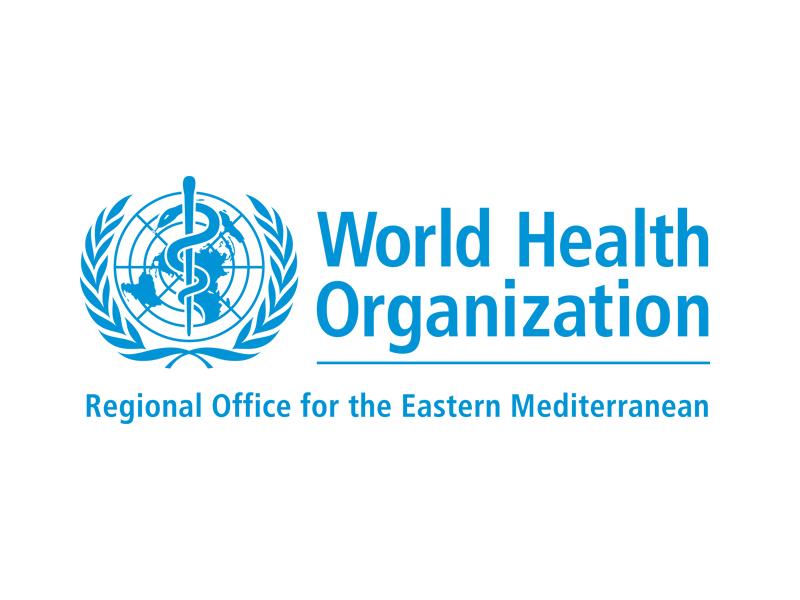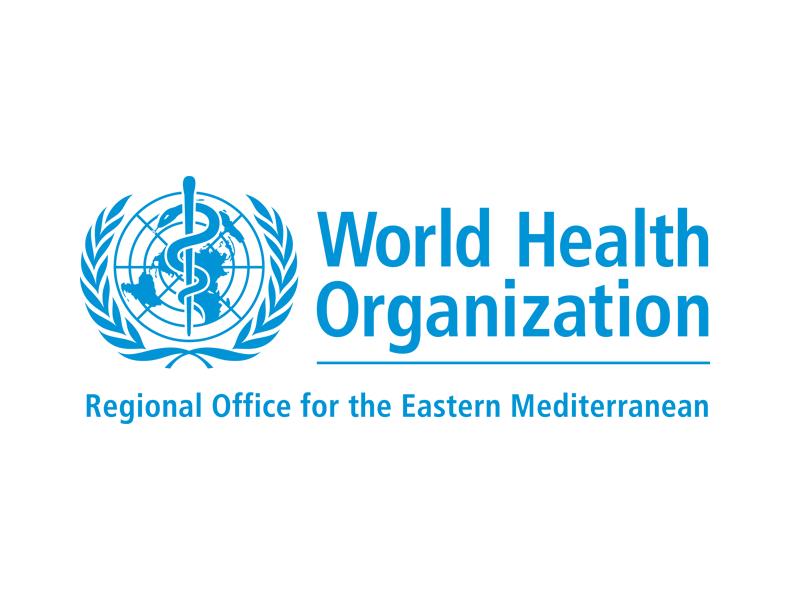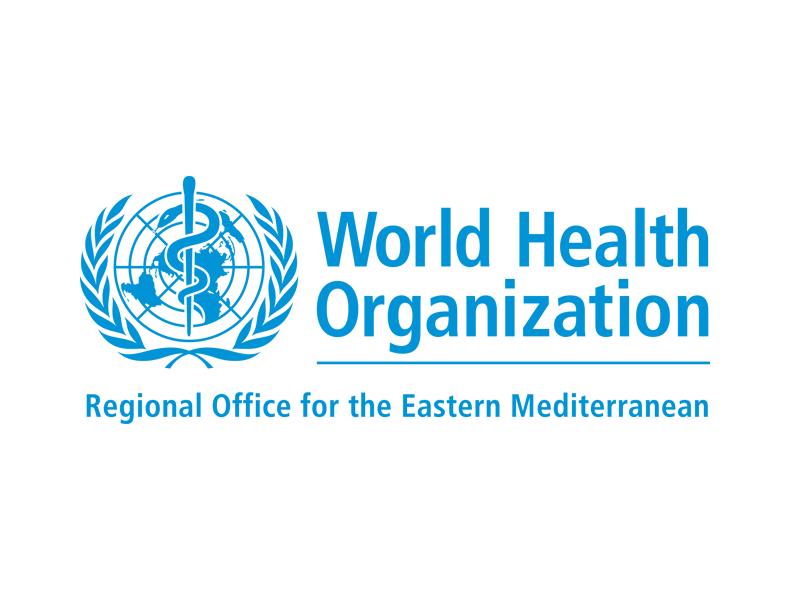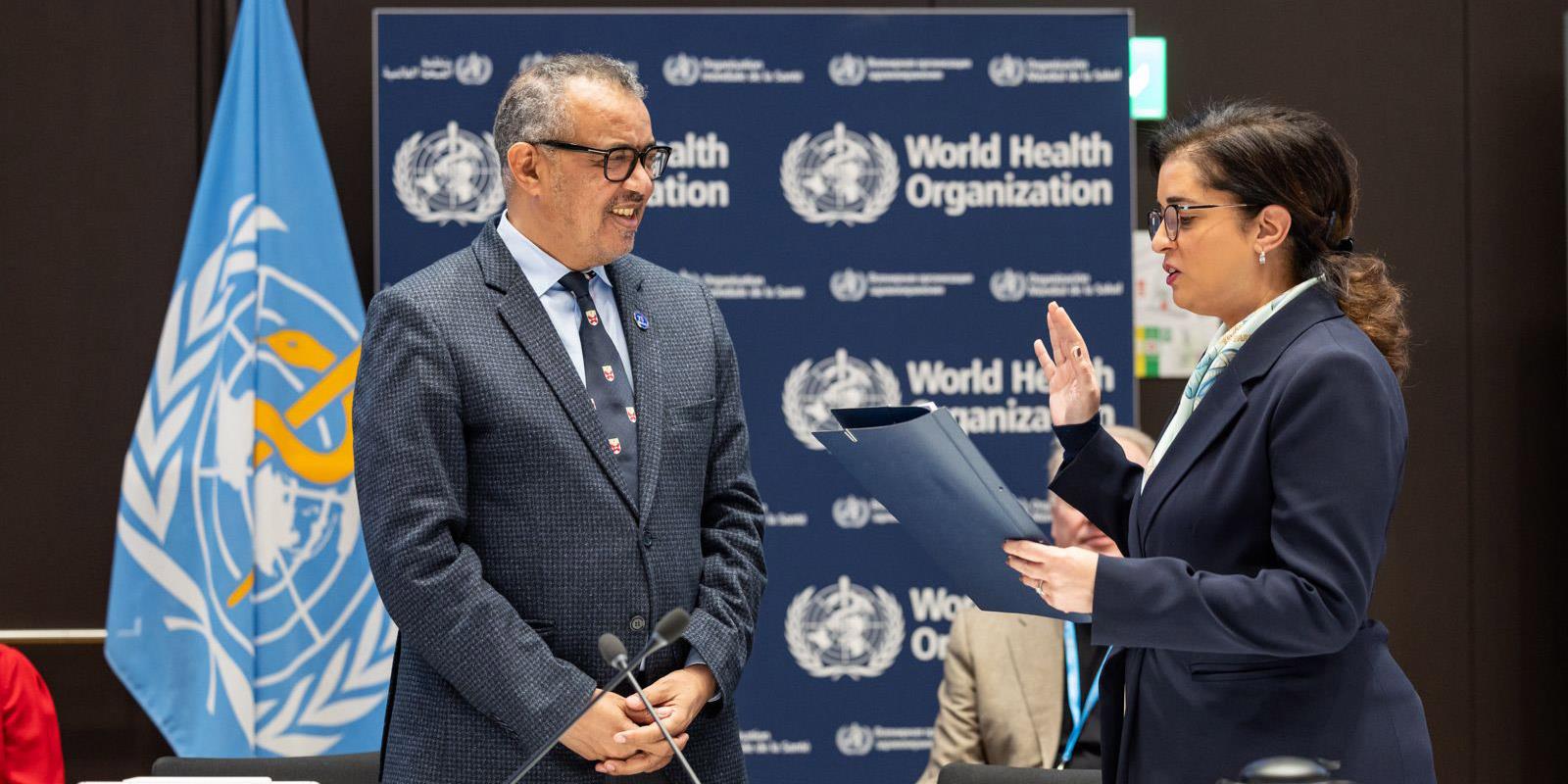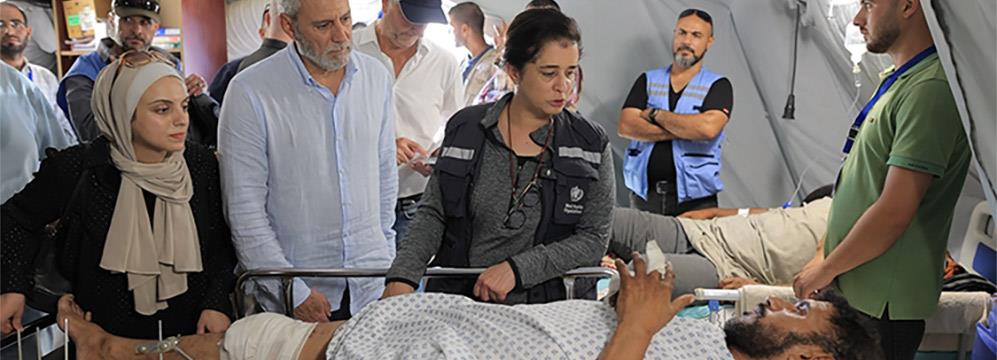
19 August, 2024
Today, on World Humanitarian Day, we stand united in honouring the extraordinary dedication of humanitarian workers who, in the face of extreme adversity, continue to bring hope, relief and essential services to millions in need across the Eastern Mediterranean Region and, indeed, across the world. This day serves as a reminder of our collective responsibility to protect those who dedicate their lives to serving others, often at great personal risk.
The theme of this year’s World Humanitarian Day, Act for Humanity , serves as a poignant reminder that 2023 was the deadliest year on record for humanitarian workers. Despite the 75 years that have passed since international laws were established to protect civilians and aid workers during conflict, protections are increasingly being ignored. We are gravely concerned that 2024 is on track to be even worse, with continued escalations in the Occupied Palestinian territory, Sudan, Syria, Lebanon and Yemen.
Our Region is no stranger to conflict and disasters. Ongoing emergencies have left over 100 million people in need of humanitarian assistance, including for health. In these perilous environments, the bravery and selflessness of our humanitarian workers shine through.
We mourn the loss of every colleague who has died in the line of duty.
Today, I want to take a moment to remember three remarkable members of the WHO family whose lives were tragically cut short.
Dima Abdullatif Mohammed Alhaj, a patient administrator at the Limb Reconstruction Centre in Gaza, was killed when her parents’ house, where she had sought refuge, was bombed. Alongside her husband, six-month-old son, and two brothers, she perished in an act of senseless violence. Dima, just 29-years-old, had dedicated her life to helping others.
We also honour Engineer Emad Shehab, 42, who lost his life in Deir-ez-Zor, Syria, during an airstrike. His invaluable work in water, sanitation, and hygiene (WASH), including renovations at Al Assad Public Hospital, was essential for the safe running of health facilities.
We also remember Nasra Abdi Hassan, 27, a District Public Health Officer in Somalia, who was tragically killed in an attack in Mogadishu while taking some well-deserved rest and relaxation from her demanding, life-saving work.
We also continue to mourn for the entire humanitarian family in Gaza which has lost 287 aid workers, including 205 UNRWA staff, since October 2023.
Their deaths represent not only a grave loss for their families and colleagues, they are also a devastating loss for the communities they served and for the humanitarian cause.
We must remember the 17 UN personnel and countless members of national and international NGOs, diplomatic missions and civil society who have been arbitrarily detained in Yemen. This includes 13 UN personnel arrested by the Houthi de facto authorities in June 2024 across Hajjah, Hudaydah, Sa’ada and Sana’a governorates, as well as four UN staff detained since 2021. We call for their immediate unconditional release.
The statistics for 2023 are harrowing, with 935 attacks on health care facilities across the Eastern Mediterranean Region recorded, leading to 669 deaths and 1054 injuries among health workers. Alarmingly, the first eight months of 2024 have shown no signs of improvement, with 433 attacks already recorded, resulting in 286 deaths and 322 injuries. These numbers are not just cold statistics. They represent real lives lost, families torn apart and communities left without essential care. The violence against those who provide life-saving services must end.
Targeted attacks on health facilities, health workers and patients are not only violations of international law but an affront to the sanctity of health. These actions undermine humanitarian work and violate the core principles of humanity, impartiality, neutrality and independence that guide our efforts.
On World Humanitarian Day, we call on the international community to take decisive action to end these violations. The impunity that allows these crimes to continue must be confronted with the full force of international law.
To all humanitarian workers, in the Eastern Mediterranean Region and beyond, we extend our deepest gratitude. Your courage, commitment and compassion are the lifeblood of humanitarian action. Despite the dangers you face, you continue to deliver life-saving services which stand as a testament to the resilience and strength of the human spirit. We honour your contributions today and every day.
As we remember those we have lost, we reaffirm our commitment to their legacy by advocating for stronger protections for humanitarian workers and by working tirelessly to ensure that all people, regardless of where they are, can access the help they need to survive and thrive. And, of course, we continue to pray and advocate for an end to the senseless conflicts that are taking lives, destroying livelihoods and halting development across our Region and beyond.




